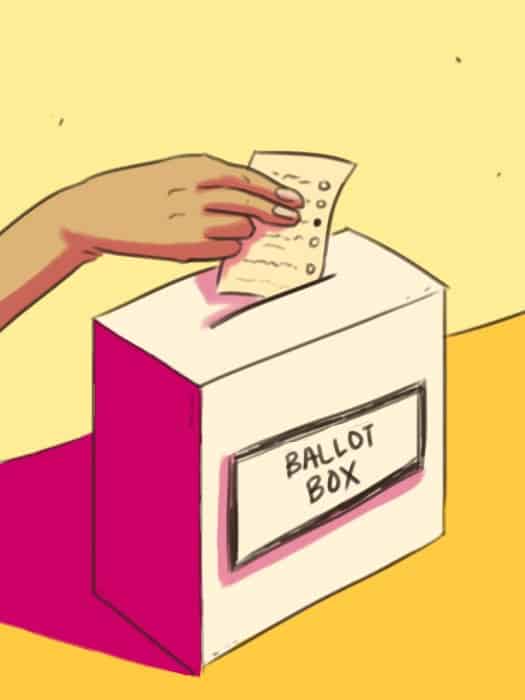If there is one thing that many Canadians appear to agree on this election campaign, it is that they want Stephen Harper gone. Nevertheless there is a distinct possibility that he will win his fourth election because of vote splitting between progressive voters — when voters divide their support among multiple similar candidates.
In Canada, the progressive vote is divided amongst the Greens, Liberals, and NDP such that Conservative candidates win in many ridings, even where the combined progressive vote is greater than 50 per cent.
This issue is due in part to the first-past-the-post (FPTP) electoral system in Canada. In the FPTP system, votes for a candidate in a specific riding will count for nothing if that candidate loses, because FPTP dictates that the winning candidate takes a seat in Parliament and the losing candidates get no other form of institutionalized representation. Given that candidates only need a plurality of votes to obtain a seat in Parliament, the progressive sentiments of Canada’s citizenry can often be lost in vote translation.
Strategic voting is a way to try and combat this problem by encouraging voters to rally around the candidate most likely to defeat the dissimilar candidate. In Canada, this does not necessarily mean voting for the party leading in the national polls. Instead, you must vote for the candidate who is most likely to unseat the less favourable option in your specific riding. With this strategy, partisan allegiances are downplayed, and the emphasis is on voting against a specific candidate.
While this is a pragmatic way to oust Harper, strategic voting is not without it’s critics. Many decry the decline of democracy they argue that we compromise our moral conscience by ‘voting against,’ rather than ‘voting for.’ Another criticism is that this strategy leads people to consider supporting parties that they are ideologically opposed to.
In reality though, voting strategically does not require a significant departure from one’s values, given that progressive Canadian parties have relatively similar values. So similar, in fact, that 42 per cent of Canadians in a recent poll struggle to differentiate between the Liberals and the NDP — the two most prominent progressive parties.
While many may criticize the Liberals for supporting Bill C-51, when the NDP starkly opposed it, criticisms that the Liberal party is not progressive enough can also be made about the NDP. For instance, the Liberals have pledged to run deficits and raise taxes on the wealthy one per cent while the NDP promise to run a balanced budget with no income tax increases. The bottom line is that the net difference in the progressiveness of these party platforms is largely negligible compared with the immense ideological gap between the progressive and Conservative parties.
Each of the progressive parties have proposed electoral reform this election so perhaps strategic voting will become a thing of the past. It is worth noting that proportional representation can lead to a host of other problematic issues, such as the rise of radical parties with narrow platforms, as well as increased discord and instability within parliament.
The argument for strategic voting is motivated by the fact that the Conservative party have not committed themselves to electoral reforms; and while strategic voting may be unpalatable, it may also be necessary to maneuver our current elections policies into a position where voting by principle is actually going to be represented by the electoral process.
Alex Hempel is a third-year student at Trinity College studying economics and European studies.


